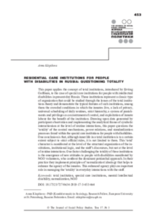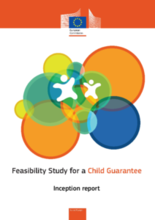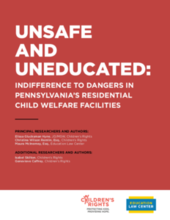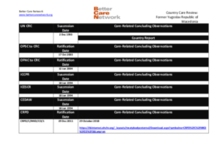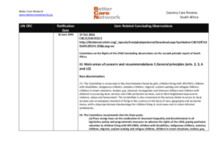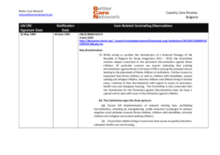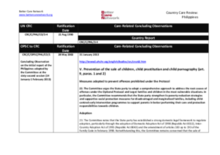Displaying 201 - 210 of 477
This paper applies the concept of total institutions, introduced by Erving Goffman, to the case of special care institutions for people [including children] with intellectual disabilities in present-day Russia.
This open access article explores three related phenomena: first, the abandonment and institutionalization of children with disabilities in China that increased disproportionately in the 2000s; second, the important relationships between such abandonments, culture, economics, and politics in contemporary China; and third, the relationship between such abandonments, the increasing rates at which Chinese orphans with disabilities are being adopted to Western countries through Inter-country Adoption (ICA), and the global politics of ICA and disability.
This article gives specific information on a program in Missouri, USA that took the emerging therapeutic foster family approach and added a novel component: training deaf families to become therapeutic foster parents, including how it was established, what problems arose, and what solutions were tried.
This report - prepared for the European Commission by Applica and the Luxembourg Institute of Socio-Economic Research (LISER), in close collaboration with Eurochild and Save the Children - provides a first mapping of the situation across the 28 Member States of the EU outlining the situation in relation to children, particularly the four target groups (TGs) of disadvantaged children (children in institutions, children with disabilities, children of recent migrants and refugees, and children living in precarious family situations) as well as an indication of the key issues in relation to children’s access to the five policy areas (PAs): housing, healthcare, nutrition, early childhood education and care, and education.
This report is divided into two parts. Part A focuses on the dangers that occur at Pennsylvania’s residential facilities when the Pennsylvania Department of Human Services (“PA-DHS”) fails to provide meaningful oversight. Part B provides background on child residents’ educational rights, details the inferior education that children at these residential facilities receive, especially those children with disabilities, and the devastating consequences.
Using the data from a a nationwide evaluation of accessibility of employment and education in Latvia, the authors of this paper argue that due to the fragmented implementation of deinstitutionalisation (DI) and lack of a child centred approach throughout the education sector, despite educators firmly believing they are acting in the best interests of children, current practices of care contribute to the creation of ‘inclusive exclusion’
This country care review includes the care-related Concluding Observations adopted by the Committee on the Rights of Persons with Disabilities.
This country care review includes the care-related Concluding Observations adopted by the Committee on the Rights of the Child and the Committee on the Rights of Persons with Disabilities.
This country care review includes the care-related Concluding Observations adopted by the Committee on the Rights of the Child and the Committee on the Rights of Persons with Disabilities.
This country care review includes the care related Concluding Observations adopted by the Committee on the Rights of the Child and the Committee on the Rights of Persons with Disabilities.

